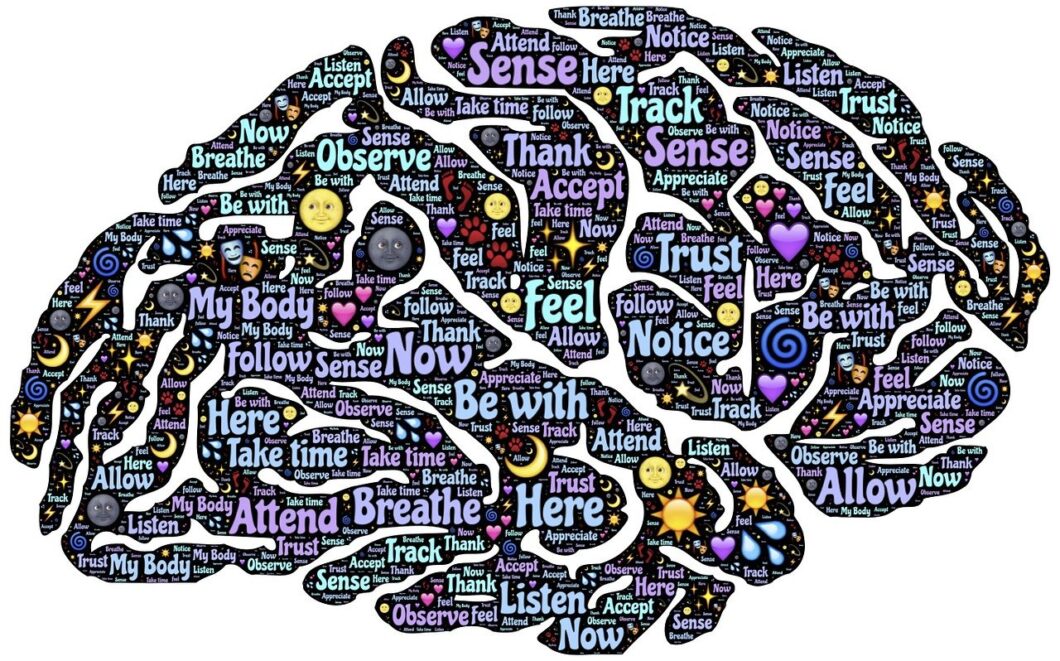Image by John Hain from Pixabay
Can mindfulness and meditation really help athletes perform better? As an athlete mental health coach and certified meditation and mindfulness teacher who has worked with athletes of all levels and across various sports, I can confidently say that yes, mindfulness is a powerful tool that can significantly improve athletic performance.
From managing performance anxiety to staying focused during competition and managing emotions, mindfulness has helped many of the athletes who I work with to reach their goals. Moreover, there are long-term benefits to practicing mindfulness in not just sports, but in all areas of life.
Let’s face it, athletes face a unique set of mental challenges. From the pressure to perform under the spotlight to the constant fear of injury and setbacks, the mental game can be just as demanding as the physical one. Mindfulness offers a solution by training your mind to be present, focused, and resilient in the face of pressure. It’s why elite athletes like Novak Djokovic and Giannis Antetokounmpo have been influenced greatly by mindfulness principles.
“You can’t allow one second to affect the rest of your performance just because you didn’t make a shot.”
Caitlyn Clark
What is mindfulness and how can it help athletes?
Mindfulness is the practice of paying attention to the present moment without judgment. In the context of athletics, this means being aware of your thoughts, feelings, and bodily sensations without getting caught up in them. It’s about observing your pre-competition jitters without letting them spiral into anxiety or noticing fatigue during training without succumbing to self-doubt. And as George Mumford likes to say, it’s about focusing on what you’re doing, not how you’re doing it.
“It’s about what you’re doing, now how you’re doing it.”
George Mumford
The Science Behind Mindfulness Benefits in Sports
The science behind mindfulness is compelling. Numerous studies have shown that mindfulness training can improve focus and concentration, reduce stress and anxiety, enhance emotional regulation, and even accelerate injury recovery in athletes.
Consider these findings from a 2023 study that summarized existing evidence of Mindfulness-Based Interventions (MBI):
- A 15-minute mindfulness intervention appears to have some effects on participants’ first basketball free-throw shot and state anxiety when performing under pressure. [Wolch et al. (2021)]
- Mindfulness-Acceptance-Commitment-based approach is an effective intervention to increase athletic performance and reduce experiential avoidance and sports anxiety in athletes. [Dehghani et al. (2018)]
- Trait mindfulness is related to fewer performance worries and prevents the remaining worries from influencing athletes’ behavior, thereby helping them to perform better. [Röthlin et al. (2016)]
- Mindfulness training shows promise in preventing injury and improving performance. [Mozafari Zadeh et al. (2019)]
- Mindfulness-based interventions tailored to specific athletic pursuits can be effective in facilitating flow experiences. [Scott-Hamilton et al. (2016)]
In what ways does mindfulness improve athletic performance?
Here are some of the ways in which mindfulness can specifically benefit athletic performance:
- Improved Focus and Concentration: By quieting the mind chatter and staying present in the moment, mindfulness allows you to concentrate better on the task at hand, whether it’s mastering a new technique or executing a game-winning play.
- Reduced Anxiety and Pre-Competition Jitters: Mindfulness equips you with tools to manage pre-competition nerves and channel them into positive energy. By observing your anxious thoughts without judgment, you can learn to detach from them and maintain a calm and focused state.
- Enhanced Emotional Regulation and Mental Toughness: Athletes often face setbacks and frustrations. Mindfulness helps you develop emotional regulation skills, allowing you to bounce back from challenges and maintain a positive outlook.
- Faster Injury Recovery and Improved Sleep Quality: Mindfulness practices like meditation can promote relaxation and improve sleep quality, which is crucial for optimal recovery and performance. Additionally, by enhancing body awareness, mindfulness can help you identify early signs of fatigue or injury.
- Increased Self-Awareness and Body Awareness: Mindfulness cultivates a deeper connection with your body. You become more attuned to subtle physical cues, allowing you to move with greater efficiency and precision.
So how do you get started with mindfulness? The good news is that mindfulness is a skill that can be cultivated with practice. Check out this article with 20 mindfulness exercises that you can try.
Remember, mindfulness is a journey, not a destination. Be patient with yourself and celebrate your progress, no matter how small. There are also many resources available online and through mindfulness programs specifically designed for athletes.
I’ve seen firsthand the transformative power of mindfulness in my work with athletes. By incorporating mindfulness practices into their training routines, athletes can develop the mental focus, emotional resilience, and overall well-being needed to reach their full potential. Beyond the game, I’ve seen the transformative power of mindfulness in managing everyday life.
Subscribe to my blog for more tips on mindfulness and mental health for athletes, or contact me today to discuss personalized mindfulness coaching options.

